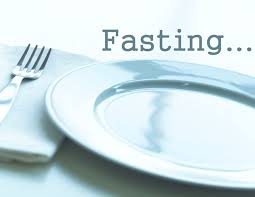Fasting in combination with chemotherapy has already been shown to kill cancer cells, but a pair of new studies in mice suggests that a less-toxic class of drugs combined with fasting may kill breast, colorectal and lung cancer cells equally well.
If shown to work in humans, this combination could replace chemotherapy and make fasting a potent component of a long-term strategy to treat cancer, according to senior author Valter Longo of USC.
The studies suggest that a low-toxicity drug combined with fasting, or a diet that mimics the effects of fasting, could be an alternative to chemotherapy.
“Like every other cell, cancer cells need energy to survive and keep growing. But cancer cells are fairly inflexible about how they produce that energy, which gives us a way to target them,” said Longo, Edna M. Jones Professor of Biogerontology at the USC Davis School of Gerontology and director of the USC Longevity Institute.
Cancer cells rely heavily on glucose (sugar) from food for energy — they’re on overdrive, burning much more glucose than a regular cell to fuel their rapid growth. The phenomenon is called the Warburg effect, named after the German physician who first described it nearly 100 years ago. As such, cancer cells are much more vulnerable to any interruption in supply.
Deprived of glucose, cancer cells rely on an emergency backup — using a type of enzyme called a kinase to continue their growth-related activities.
Longo and his team and collaborators discovered that this metabolic shift by cancer cells causes them to generate toxic-free radicals, which ultimately kills them. In addition, the kinase pathway for generating energy can be blocked by kinase inhibitors, further choking off cancer cells’ ability to generate energy, opening the door to using them and fasting as a one-two punch to knock out cancer.
“However, kinase inhibitors, though much less toxic than chemotherapy, can still be toxic to many cell types. Fasting makes them more effective, meaning that patients would have to use them for less time to achieve the same results,” Longo said. “Although we have not yet tested this, we anticipate that fasting will also reduce the toxicity of kinase inhibitors as it reduces that of chemotherapy to normal cells.
Source: Science Daily
N.H.Khider

